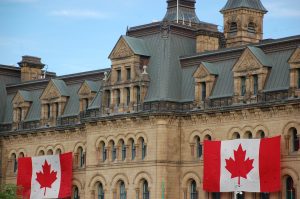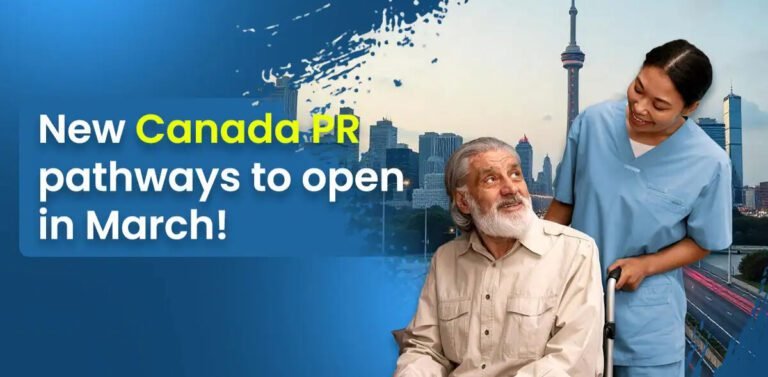Are you planning to travel abroad but worried about visa rejection? You’re not alone. Getting a visa approved can be a daunting task, especially if you are unaware of the common reasons for refusal and how to avoid them. In this blog post, we’ll discuss the top 10 reasons why visas get rejected and provide practical tips on how to increase your chances of approval. So sit tight, grab a cup of coffee, and read on as we unravel the secrets behind successful visa applications.
Introduction to Visas
There are many reasons why someone might be denied a visa. Some of the most common reasons include:
- Not meeting the requirements for the specific visa category they are applying for
- Incomplete or inaccurate application materials
- A criminal history
- Health concerns
- Security concerns
Fortunately, there are steps that can be taken to avoid these common pitfalls. For example, make sure to thoroughly research the requirements for the visa you are applying for and double-check your application materials before submitting them. It is also a good idea to disclose any criminal history on your application and be prepared to discuss any health concerns with a Consular officer. Remember that security concerns are often raised when an applicant has family members or close friends who live in areas of conflict or instability. If you have any connections to such areas, be prepared to explain your relationship and how you plan to maintain contact while residing in the United States.

Reasons Visa Applications are Rejected
There are a number of reasons why a visa application might be rejected. The most common reasons are listed below:
- Incomplete or Incorrect Documentation: One of the most common reasons for visa rejection is incomplete or incorrect documentation. Make sure that you have all of the required documents, and that they are completed correctly.
- Lack of Funds: Another common reason for visa rejection is a lack of funds. Visa applicants must show that they have enough money to support themselves during their stay in the country. Be sure to include evidence of financial resources, such as bank statements or sponsorship letters.
- Insufficient ties to home country: Some visa applicants are rejected because they do not have strong enough ties to their home country. Visa officers want to see that you have a reason to return to your home country after your trip. Be sure to include evidence of your ties, such as employment contracts or family ties.
- Lack of Financial Resources: One of the most common reasons for visa rejection is a lack of financial resources.
This can be demonstrated in a number of ways, including:
-
- Not having enough money in your bank account to cover the cost of your trip
- Not having a job or source of income that can cover the cost of your trip
- Not having enough money in your bank account to cover the cost of your visa application fee
- Not having insurance that covers the cost of your medical care while you are abroad
There are a few things that you can do to avoid this issue:
-
- Make sure that you have enough money in your bank account to cover the cost of your trip before you apply for a visa.
- If you are self-employed, make sure to have documentation that proves your income and ability to pay for your trip.
- Make sure to have insurance that covers the cost of your medical care while you are abroad.
- Incomplete Documentation: There are many reasons why incomplete documentation can lead to visa rejection. The most common reason is that the applicant has not provided all of the required documentation. Other reasons include incorrect or outdated information, insufficient evidence of ties to one’s home country, and incorrect or missing passport information. To avoid visa rejection due to incomplete documentation, it is important to make sure that all required documentation is included in the application packet. In addition, all information must be accurate and up-to-date. Those applying for a visa should also make sure they have strong ties to their home country, as this will increase the chances of approval. Be sure to double-check all passport information before submitting the application to avoid any delays or errors.
- Misrepresentation of Information: When applying for a visa, it is important to be honest and upfront about all aspects of your application. Misrepresenting information, whether it is intentional or not, can lead to your visa being rejected. Some common examples of misrepresentation include:
-
- Providing incorrect or false information on your visa application form
- Withholding relevant information from the visa officer during your interview
- Lying about your purpose of travel or intended length of stay in the country
If you are caught misrepresenting information on your visa application, it is highly likely that your application will be denied. In some cases, you may also be banned from applying for a visa in the future. To avoid having your visa application rejected due to misrepresentation, make sure that all the information you provide is accurate and truthful.
- Overstayed Previous Visas: If you have overstayed a previous visa, it is likely that your application for a new visa will be rejected. Overstaying your visa can result in a number of consequences, including but not limited to:
- Being unable to return to the United States for up to 10 years
- Being placed in removal proceedings
- Being detained by U.S. Immigration and Customs Enforcement (ICE)
To avoid these consequences, it is important to make sure that you do not overstay your visa. If you are unsure of the expiration date on your visa, please consult with an immigration attorney or accredited representative.
- Intention to Work Illegally: There are a number of reasons why someone might be rejected for a visa, but one of the most common is an intention to work illegally. If you’re planning on working in the country you’re visiting, it’s important to make sure you have the proper documentation and permissions in place. Otherwise, you may find yourself being denied entry.
- Criminal Record: A criminal record is one of the most common reasons for visa rejection. There are a few things you can do to avoid this, however. First, make sure that you have no criminal history. Second, if you do have a criminal record, make sure it is sealed or expunged. If you have a pending criminal case, make sure you have a strong defense and are prepared to present your case to the consulate.
- Health Issues: There are a number of health-related issues that can lead to visa rejection, including communicable diseases, mental health problems, and drug addiction. To avoid visa rejection on health grounds, it is important to ensure that you are in good health and free of any serious communicable diseases. If you have a mental health problem or drug addiction, it is important to get treatment before applying for a visa.
- Unqualified Dependents/Family Members Accompanying Applicant: If you are planning to apply for a visa, be sure to check whether your family members or any other dependents are eligible to accompany you. A common reason for visa rejection is having an unqualified dependent. Make sure that all of your accompanying family members meet the requirements for entry into the country.

How to Avoid Visa Rejection
There are a number of reasons why your visa may be rejected, but there are a few common reasons that occur more often than others. By being aware of these reasons, you can avoid them and increase your chances of having your visa approved. One of the most common reasons for visa rejection is incomplete or inaccurate information on the application. Make sure that you double-check all of the information you provide and that it is accurate before you submit your application. Another common reason for visa rejection is failing to meet the requirements set forth by the country you are applying to visit. Make sure that you are familiar with the requirements and that you meet them before applying for a visa. One of the most common mistakes made when applying for a visa is failing to allow enough time for processing. Many countries require several weeks or even months to process a visa application, so make sure to apply well in advance of your planned travel date.
Conclusion
Applying for a visa can be an unnerving process, but with the right preparation, you can increase your chances of success. We’ve covered 10 of the most common reasons why visas are rejected and provided advice on how to address each issue. By following these tips, you will be well-prepared when it comes time to submit your application and hopefully make it through the process without any issues. Good luck!







